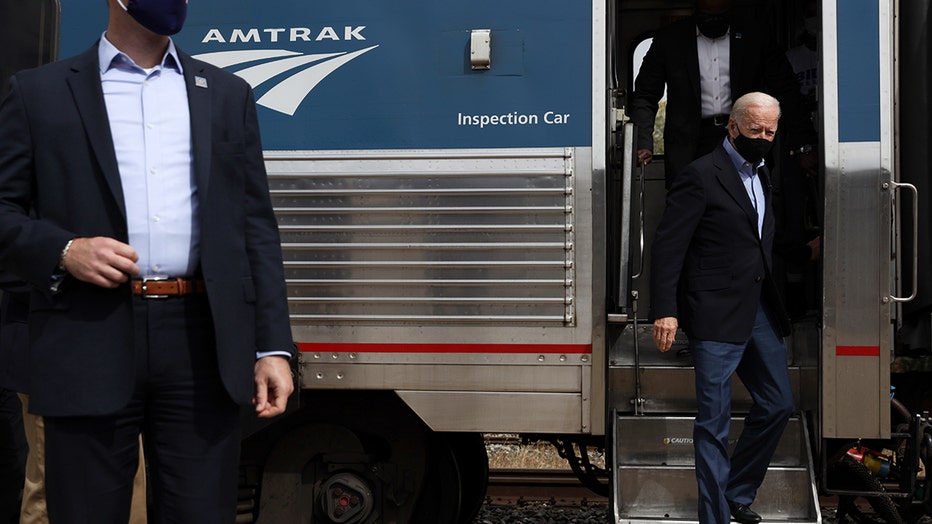Amtrak cancels all long-distance trains as nationwide railroad worker strike looms
Growing concern among passengers over potential nationwide railroad worker strike
There are growing concerns that tens of thousands of railroad workers nationwide could walk off the job Friday. Passengers on Bay Area railways are worried. Negotiators are trying to beat a strike deadline that would affect everything from crude oil to farming.
Oakland, California - In the final hours before what could be a massive railroad strike, workers say sick-time policies and quality of life concerns remain unresolved. Officials were apparently correct in their fear a strike would spill over to passenger trains and the still recovering supply chain.
Late Wednesday, Amtrak canceled all of its long-distance trains for Thursday, Sept. 15. Amtrak said waiting for freight trains to clear the tracks is the main reason passengers are delayed. Service updates for Friday, Sept. 16 would be announced Thursday. Amtrak said they are closely monitoring the ongoing freight-labor negotiations.
In 2019, Amtrak carried 11.5 million people in California. 2.7 million at the Bay Area's 13 stations. Nonetheless, the freight companies own the tracks, and a major freight strike is behind the derailing of passenger travel.
Passengers are concerned.

(Photo by Alex Wong/Getty Images)
"BART doesn't go where I go all the way down to Santa Clara so I can't take BART because I have a quick drive to here, which is a lot easier than getting to a BART station," said frequent Amtrak commuter Meg Gudgeirsson. "Yes, I definitely think it will be an inconvenience because with jobs being all up and down the state people are commuting: said Amtrak passenger Jamal Cooks.
Earlier, Amtrak wrote: "Amtrak has begun to make initial service adjustments in response to a possible freight railroad service interruption that could occur later this week. If your train is canceled, we will attempt to notify you at least 24 hours in advance."
Capitol Corridor and Altamont Commuter Express are both offering partial service on Thursday with fewer departures if a strike is called. Both those services would be suspended entirely on Friday.
There are no changes to Caltrain service on Thursday, but if a strike is called, Caltrain will suspend service between its Capitol Station in San Jose and Gilroy Station.
And the 90,000 railroad workers threatening a Friday strike transport 30% of the nation's freight rail capacity. Rail economist Jim Blaze has been in the business for almost a half century. He says, with money issues settled, workers have a legitimate claim to having life issues resolved. "There's been a sort of disrespect for the home life, the quality of life and the quality of working," said Blaze. "I support unions and I want workers to have good conditions and I support that," said Gudgeirsson. "In negotiations, if you want to have a deal, you can make a deal, said Cooks.
But even a deal may not resolve this issue. "And then, I'm not quite sure if everybody is gonna show up and go back to work," said Blaze.
In the west, the clogged ports of L.A. and Long Beach, which the nation depends on, are most vulnerable because they depend heavily on rail.
SEE ALSO: BART's 50 Year Anniversary: Transit agency's half-century of service
"There the case is they didn't clear out the stuff that they weren't able to move because there were short of chassis or they were short of truck trades drivers," said Blaze.
Grain shippers would be deeply affected by a strike, upsetting wide areas of food production. Coal shipments are also seriously hampered. To this day, 10% of California's electricity is generated by coal fired power plants. "It's not easy to understand or fix because no one is in charge," said Blaze.
Unless all unions agree, all will strike.

